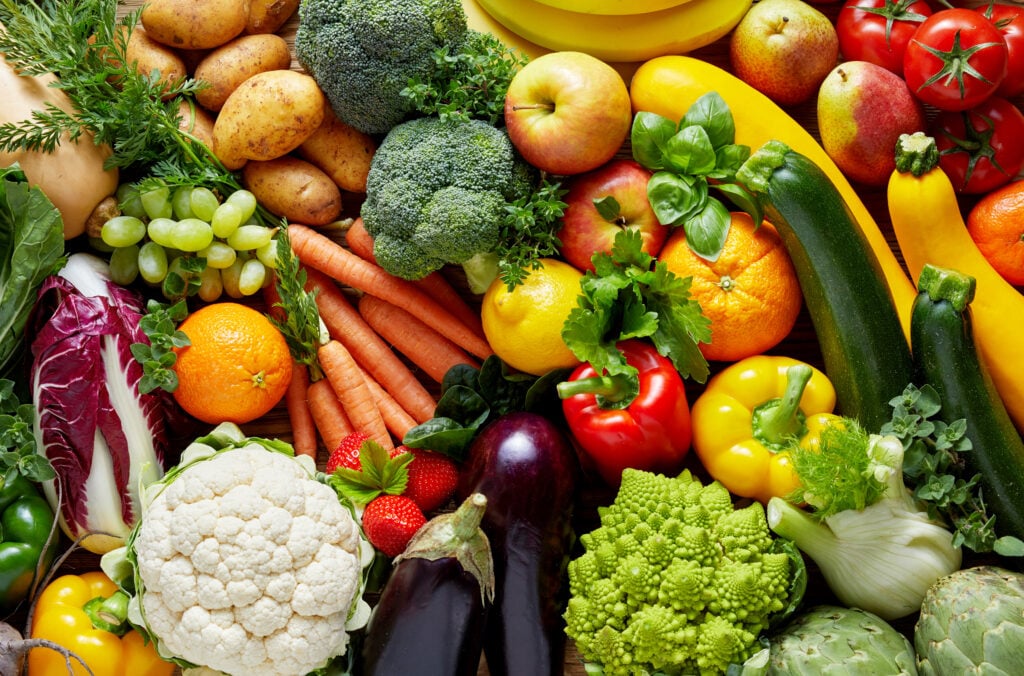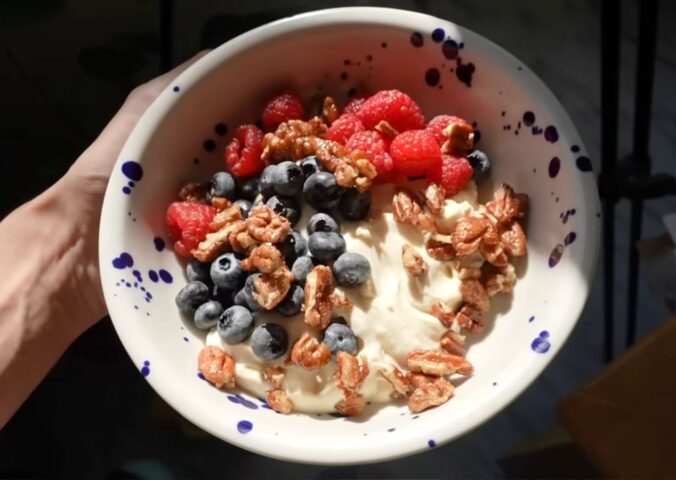Women in their forties who eat a predominantly plant-based diet are less likely to experience memory loss later in life, according to a new study.
Daily problems with memory loss and other cognitive issues are early signs of more serious disorders such as Alzheimer’s Disease, the most common type of dementia. In the US, there were around 6.5 million cases of Alzheimer’s diagnosed in over 65s in 2022. Almost two thirds of those were women.
But following the Dietary Approaches to Stop Hypertension (DASH) diet could help women to maintain better cognitive function as they age. The diet prevents high blood pressure, which contributes to the risk of developing Alzheimer’s.
The DASH diet includes eating more plant-based foods that are rich in potassium, calcium, and magnesium. It limits the consumption of saturated fat, cholesterol, sodium, and sugar associated with red meat, sweets, and salty foods.
“Our data suggest that it is important to start a healthy diet in midlife to prevent cognitive impairment in older age,” Yixiao Song, a lead author of the study, said in a statement.
More plants, better memory

Researchers at the New York University Grossman School of Medicine conducted the study of 5,116 women. Their mean age at completion of the study was 78.9 years. The women were selected from the New York University Women’s Health Study (NYUWHS) in which they enrolled between 1985 and 1991, when their mean age was 46 years.
At the start of the NYUWHS, each woman completed a questionnaire about their demographics and physical activity and health. They also completed a food frequency questionnaire. Participants were monitored through follow up questionnaires over the next 30 years. The researchers from the current study added questions on subjective cognitive complaints (SCCs – self-reported experiences of memory loss and other cognitive impairments) to questionnaires from 2018 onwards.
Around half the women reported multiple cognitive complaints, mostly memory loss. Women who most closely adhered to DASH diet when in their forties were 17 percent less likely to have experienced multiple SCCs.
The researchers noted in the study that their findings “support previous research observations, albeit limited, that documented associations of higher intake of fruits and fruit juices, vegetables, and nuts and legumes with better subjective cognitive function.”
Evidence for benefits of plant-based foods
Other studies have found links between the consumption of some plant-based foods and lower risk of cognitive decline in older people.
A 2021 study from the University of Barcelona found that eating more plant-based foods such as fruit, nuts, and vegetables provides micronutrients called polyphenols. These could help reduce the risk of age-related cognitive decline.
Mushrooms are another food that can help to protect our brains. According to a study from the National University of Singapore, eating two portions (150g) of common mushrooms such as shiitake and white button each week cuts the risk of mild cognitive impairment in half.






